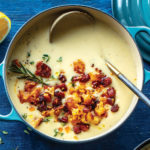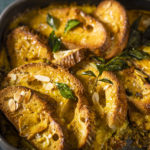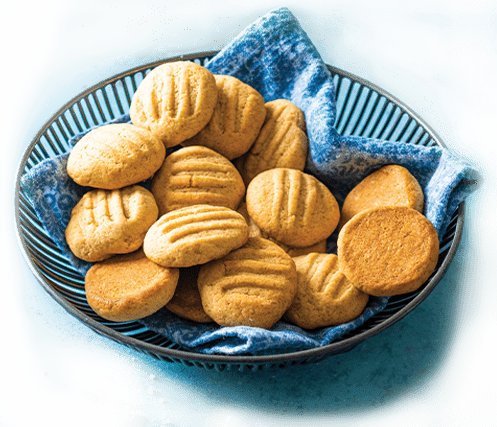Soft herbs
These are more delicate and should be added just before serving in the case of cooked
dishes as they tend to lose flavour when heated.
- Mint: This punchy, fresh-tasting herb goes well with both sweet and savoury,
particularly Middle Eastern and Mediterranean dishes – think tabbouleh, salads and
cool, creamy dips. - Coriander: The love-it-or-hate-it herb has a pungent taste of pepper and lemon. It’s
popular in Asian, Latin American and Portuguese cuisine. Stalks can flavour stock,
stews and soups. Fragile leaves can garnish soups, salads, curries, tacos, or can even
be turned into pesto or chutney. - Parsley: This old-school herb is popular for a reason. It’s so versatile, with its slightly
bitter taste and lemon notes. Flat-leaf parsley is best for raw or lightly cooked dishes
while the curly kind is tougher and works better in slow-cooked dishes. - Basil: The common variety on-shelf is sweet basil, which pairs well with garlic,
lemon, tomatoes and Asian stir-fry and Mediterranean veg. Avoid chopping, rather
press between your palms (this bruises it slightly to release flavour) to add to a
simmering dish at the end. - Sage: The not-so-common herb has a long velvety leaf, with a strong, earthy taste –
so use sparingly. This herb works well with pork and chicken and root veg.
Hardy herbs
These tough herbs can be added from the outset, for example, when sautéing the onions.
Simply discard stalks before serving.
- Rosemary: With notes of pine and camphor, this warming herb is quite strong – only
one or two sprigs are usually called for. It’s associated with French and Italian
cooking – think pasta, creamy sauces and tomato stews. This herb also works well
for a herbed sweet treat, pairing well with honey and almonds. - Thyme: Seen in many French and Italian recipes, these mild small leaves have a
warm, earthy taste. - Origanum: Pairing well with thyme and rosemary, you can add it to lamb, beef,
chicken, fish and vegetables like peppers and brinjals.
How can I make my punnet of herbs last longer?
Trim stalks off soft herbs and place in a jar with 2cm water, screw the lid on and refrigerate.
(Alternatively, cover with a plastic bag and secure with a rubber band at the base of the jar
if it’s too long.) Hard herbs are best kept between two layers of dampened kitchen towel in
a sealable bag.
Can’t use it fast enough? Place leftover herbs in an ice-cube tray, fill it with olive oil and
freeze. When ready to use, simply melt in the pan for a delicious herby flavour.









